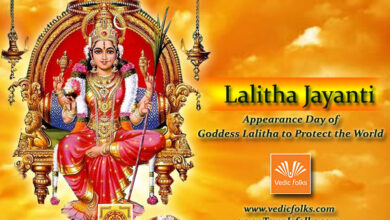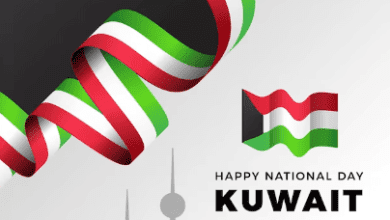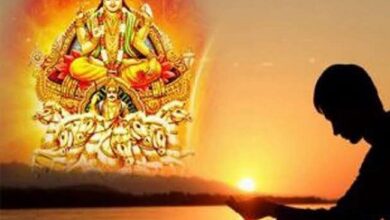Discover the inspiring traditions and stories that make Heroes’ Day in Mozambique a day of national pride. Join the celebration!
QUICK FACTS:
- Date: February 3rd
- Main Components: Patriotic parades, speeches, and ceremonies
- Popularity: High among Mozambicans and other African nations
- Pairings: Mozambican flag, national anthem, and symbols
- Variations: None
Introduction
Heroes’ Day in Mozambique is a public holiday that commemorates the lives and sacrifices of the Mozambican heroes who fought for the independence of their country from Portuguese colonial rule. The holiday is observed on February 3rd every year, which marks the anniversary of the assassination of Eduardo Mondlane, the leader of the Mozambique Liberation Front (FRELIMO) and the father of the Mozambican nation. Heroes’ Day in Mozambique is a day to honor the memory and legacy of Mondlane and other freedom fighters who gave their lives for the cause of liberation and democracy.
The History and Origins of Heroes’ Day in Mozambique
Mozambique was colonized by Portugal since the 16th century, when Portuguese explorer Vasco Da Gama reached its shores. For centuries, Mozambicans suffered under harsh and oppressive colonial policies that exploited their natural resources, labor, and culture. In the mid-20th century, nationalist movements emerged across Africa, inspired by the decolonization of other regions and the rise of anti-imperialist ideologies. In Mozambique, a group of educated and politicized Mozambicans formed FRELIMO in 1962, with Eduardo Mondlane as its president. FRELIMO aimed to unite all Mozambicans against colonialism and to establish a democratic and independent state.
Related: National Freedom Day In United States
In 1964, FRELIMO launched a guerrilla war against the Portuguese army, which had a superior military force and equipment. The war lasted for 10 years, during which FRELIMO gained support from neighboring countries, such as Tanzania and Zambia, as well as from socialist countries, such as China and Cuba. FRELIMO also established its own administrative, educational, and economic structures in the liberated areas, promoting social justice and national identity among the people.
On February 3rd, 1969, Eduardo Mondlane was killed by a bomb hidden in a book that was sent to him at his office in Dar es Salaam, Tanzania. The bomb was allegedly planted by agents of the Portuguese secret police (PIDE), who wanted to eliminate the charismatic and visionary leader of FRELIMO. Mondlane’s death was a huge blow to FRELIMO and the Mozambican people, but it also galvanized them to continue their struggle with more determination and courage.
In 1974, after a coup d’état in Portugal that overthrew the dictatorship, FRELIMO and Portugal signed a ceasefire agreement that recognized Mozambique’s right to independence. On June 25th, 1975, Mozambique became an independent republic, with Samora Machel, Mondlane’s successor, as its first president.
The Significance and Relevance of Heroes’ Day in Mozambique
Heroes’ Day in Mozambique is a national holiday that celebrates the achievements and contributions of the Mozambican heroes who fought for their country’s freedom and dignity. The holiday is also a reminder of the challenges and difficulties that they faced and overcame during their struggle. Heroes’ Day in Mozambique is a day to pay tribute to their courage, sacrifice, and patriotism.
Heroes’ Day in Mozambique is also a day to reflect on the values and principles that guided the liberation movement and that continue to inspire the Mozambican people today. These values include unity, solidarity, democracy, social justice, human rights, and national sovereignty. Heroes’ Day in Mozambique is a day to reaffirm the commitment to these values and to uphold them in all aspects of life.
Heroes’ Day in Mozambique is also a day to celebrate the diversity and richness of the Mozambican culture and identity. The holiday recognizes that the heroes of Mozambique came from different ethnic groups, regions, religions, languages, and backgrounds, but they shared a common vision and goal for their country. Heroes’ Day in Mozambique is a day to appreciate the cultural heritage and legacy that they left behind and to promote harmony and tolerance among all Mozambicans.
Related: Memorial Day of the Republic In Hungary
The Modes and Forms of Celebration of Heroes’ Day in Mozambique
Heroes’ Day in Mozambique is a public holiday that is marked by various events and activities across the country. Some of the common modes and forms of celebration are:
- Patriotic parades: On Heroes’ Day in Mozambique, people gather in public places to watch or participate in patriotic parades that display the national flag, anthem, symbols, and colors. The parades also feature military personnel, veterans, students, workers, artists, and other groups that represent the Mozambican society. The parades are usually accompanied by music, dance, and speeches that celebrate the heroes and their achievements.
- Ceremonies: On Heroes’ Day in Mozambique, people also attend official ceremonies that honor the heroes and their sacrifices. The ceremonies are held at monuments, memorials, cemeteries, and other places that are associated with the heroes and their history. The ceremonies involve laying wreaths, lighting candles, observing moments of silence, and reading names of the fallen heroes. The ceremonies also include speeches by political leaders, religious figures, and representatives of civil society that pay homage to the heroes and their legacy.
- Social activities: On Heroes’ Day in Mozambique, people also engage in various social activities that foster a sense of community and belonging. These activities include visiting family and friends, sharing meals and stories, playing games and sports, watching movies and shows, and attending cultural events and festivals. These activities aim to strengthen the bonds and ties among the Mozambican people and to celebrate their culture and identity.
Related:
Conclusion
Heroes’ Day in Mozambique is a public holiday that commemorates the lives and sacrifices of the Mozambican heroes who fought for the independence of their country from Portuguese colonial rule. The holiday is observed on February 3rd every year, which marks the anniversary of the assassination of Eduardo Mondlane, the leader of FRELIMO and the father of the Mozambican nation. Heroes’ Day in Mozambique is a day to honor the memory and legacy of Mondlane and other freedom fighters who gave their lives for the cause of liberation and democracy. Heroes’ Day in Mozambique is also a day to reflect on the values and principles that guided the liberation movement and that continue to inspire the Mozambican people today. These values include unity, solidarity, democracy, social justice, human rights, and national sovereignty. Heroes’ Day in Mozambique is also a day to celebrate the diversity and richness of the Mozambican culture and identity. The holiday recognizes that the heroes of Mozambique came from different ethnic groups, regions, religions, languages, and backgrounds, but they shared a common vision and goal for their country. Heroes’ Day in Mozambique is also a day to appreciate the cultural heritage and legacy that they left behind and to promote harmony and tolerance among all Mozambicans. Heroes’ Day in Mozambique is a public holiday that is marked by various events and activities across the country. Some of the common modes and forms of celebration are patriotic parades, ceremonies, and social activities. These events and activities aim to foster a sense of patriotism, gratitude, pride, and community among the Mozambican people. Heroes’ Day in Mozambique is a day to remember the past, celebrate the present, and look forward to the future.



